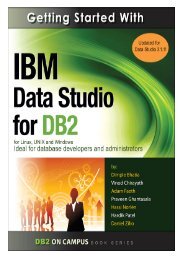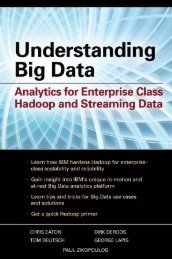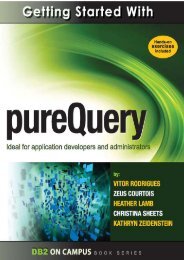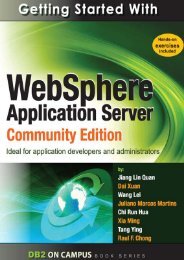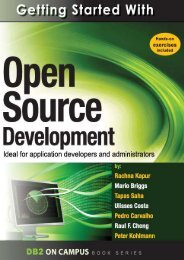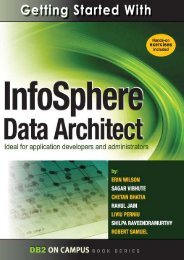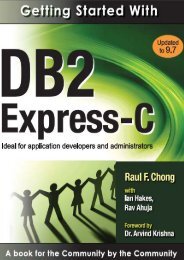Managing Computers in Large Organizations
You also want an ePaper? Increase the reach of your titles
YUMPU automatically turns print PDFs into web optimized ePapers that Google loves.
<strong>Manag<strong>in</strong>g</strong> Microcomputers <strong>in</strong> <strong>Large</strong> <strong>Organizations</strong><br />
http://www.nap.edu/catalog/167.html<br />
About this PDF file: This new digital representation of the orig<strong>in</strong>al work has been recomposed from XML files created from the orig<strong>in</strong>al paper book, not from the<br />
orig<strong>in</strong>al typesett<strong>in</strong>g files. Page breaks are true to the orig<strong>in</strong>al; l<strong>in</strong>e lengths, word breaks, head<strong>in</strong>g styles, and other typesett<strong>in</strong>g-specific formatt<strong>in</strong>g, however, cannot be<br />
reta<strong>in</strong>ed, and some typographic errors may have been accidentally <strong>in</strong>serted. Please use the pr<strong>in</strong>t version of this publication as the authoritative version for attribution.<br />
MANAGING MICROCOMPUTERS IN STATE AND LOCAL GOVERNMENT 115<br />
<strong>Manag<strong>in</strong>g</strong> Microcomputers <strong>in</strong> State and<br />
Local Government<br />
Fred Dugger*<br />
State and local governments, like private sector companies, face a new and<br />
formidable challenge—how to harness the technology of powerful, <strong>in</strong>expensive<br />
microcomputers to improve the organization's productivity. The comput<strong>in</strong>g<br />
power and low cost of these devices are well known. What is not as well known<br />
is how to manage their prudent use. We must <strong>in</strong>itially identify areas where<br />
productivity might be improved by us<strong>in</strong>g micros. Then we must address issues<br />
of product selection, procurement procedures, software acquisition and<br />
development, communications network <strong>in</strong>tegration, education, and<br />
ma<strong>in</strong>tenance. We must determ<strong>in</strong>e how microcomputer technology can enhance<br />
rather than confuse our <strong>in</strong>formation generat<strong>in</strong>g systems. We must distribute<br />
comput<strong>in</strong>g power throughout our organizations while ma<strong>in</strong>ta<strong>in</strong><strong>in</strong>g the necessary<br />
<strong>in</strong>formation flow to top management. And we must accomplish this <strong>in</strong> an<br />
environment so dynamic that tomorrow's product announcements may make<br />
yesterday's requests for bids obsolete.<br />
This dynamic environment extends to users and potential users as well. It<br />
seems that almost everyone has a strong, sometimes<br />
* Fred Dugger is director of the Department of Data Process<strong>in</strong>g, State of Nevada<br />
(Carson City).<br />
Copyright © National Academy of Sciences. All rights reserved.




